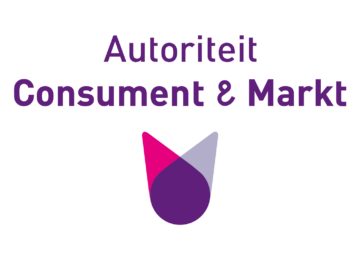TenneT emphasizes crucial role of batteries in future electricity system
The energy transition is accelerating and presenting our electricity system with major challenges. As traditional energy sources such as coal and gas are replaced by solar and wind power, the variation in energy supply is increasing. Flexibility is essential to maintain a continuous balance between supply and demand. In a new position paper, TenneT outlines the role of large-scale batteries in the high-voltage grid and emphasizes the importance of careful integration to realize system value.
Flexibility and system value
Batteries are playing an increasingly important role in the electricity system. They can store energy when there is a surplus and feed it back into the grid when there is a shortage. In this way, they offer flexibility and stability. In addition, batteries can deliver both financial and system value in various markets. They can generate income in balancing markets by providing control power or storing energy and feeding it back later when prices are high. This contributes to price stabilization. At the same time, batteries can be used for congestion management, relieving the grid at peak times. Moreover, their rapid response capability makes them suitable for system services such as balance maintenance and voltage regulation.
Co-location and long-term storage
An important development is co-location: combining batteries with existing solar or wind farms. This prevents additional grid connections, saves costs, and reduces pressure on the electricity grid. In addition to short-term storage, there is a growing need for Long Duration Energy Storage (LDES). Although LDES has limited applications in the short term, it will contribute to security of supply and the integration of renewable energy in the long term.
Growth in battery capacity
To date, no official storage target has been set in the Netherlands. TenneT makes assumptions in its scenarios based on expected market developments. According to the 2025 Security of Supply Monitor, TenneT expects that between 5 and 7 GW of battery capacity will be economically viable in the electricity system by 2030. This is an adjustment from previous estimates. Due to the phasing out of conventional controllable capacity such as coal and gas-fired power stations, the sharp increase in electricity demand, and weather-dependent feed-in, the demand for flexibility will continue to increase after 2030. Batteries can play an important role in this, and by 2050, the expectation is that there will be room for 14 to 27 GW of installed battery capacity.
Spatial and economic aspects
To ensure optimal spatial integration, TenneT is working on an overview of stations where TDTR space is available. This will help authorities reserve locations for battery projects. Authorities at national and regional level want clarity on how much space they need to reserve for battery projects and where these should ideally be located. Governments can help battery developers and grid operators by indicating which locations are and are not spatially suitable for battery development. This will enable them to provide the market and grid operators with clarity about the feasibility of projects more quickly.
Challenges in integration and uneven playing field
The use of batteries also presents challenges. When batteries primarily respond to market incentives, they can actually put extra pressure on the grid. TenneT therefore sets preconditions for safe and reliable deployment. Through instruments such as congestion management, capacity steering contracts (CSC), and alternative contract forms such as time-dependent transmission rights (TDTR), TenneT ensures that batteries contribute to system value.
Batteries can be an important part of the future electricity system. They offer flexibility, support the integration of renewable energy, and can help reduce grid congestion. However, from an economic perspective, the business case for batteries in the Netherlands is currently under pressure due to high transport costs and an uneven playing field compared to neighboring countries. In Belgium, batteries are exempt from transport costs, while Germany provides partial subsidies. In the Netherlands, a profitable business case appears to be possible almost exclusively through the Time-Dependent Transport Right (TDTR) contract, which makes use of residual capacity on the grid.
Contribution from Energy Storage NL
ESNL contributed ideas for the content of this paper. ESNL advised not to focus solely on TDTR, but also to mention other contract types such as CSC/CBC. It is important to make it clear that batteries without full TDTR allocation can also be profitable and socially relevant. In addition, ESNL pointed out that TenneT only refers to its own grid areas and that TDTR does not exist at MS, in order to prevent misunderstandings among municipalities.





